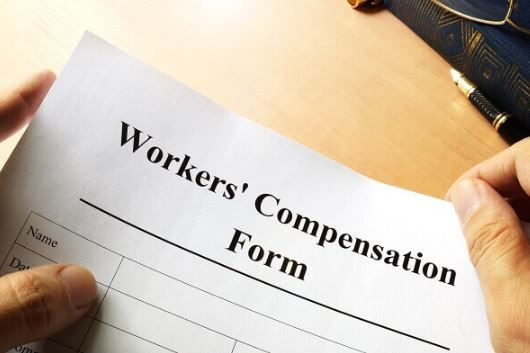Legal Blog
Workers' Comp: Can You Get Compensated from Your Pain and Suffering?
Picture this scenario:
You got injured while performing your job. You took the proper medical care, but of course, the physical pain will still be there for a certain time. Because of the pain from your injury, you realized that your quality of life somehow decreased. This may mean you're not able to spend more time with your family because you need to take more rest. This may also mean you cannot do your hobbies and other activities you enjoy because the injury prevents you from doing so.
Now, you wonder, can your workers' compensation compensate for this, too?
What is Pain and Suffering?
In a nutshell, what is described in the scenario is what is called in legal term as "pain and suffering". According to Wikipedia, pain and suffering "is the legal term for the physical and emotional stress caused from an injury."
On normal vocabulary, pain and suffering is just that – and your injury literally gives you pain and suffering. But in law, pain and suffering specifically focuses on the emotional (and physical) stress you get because of your injury.
Now, if your injury is work-related, should your pain and suffering be compensated in workers' compensation, too?
Workers' Comp vs. Pain and Suffering
Generally, workers' compensation is not created to compensate for pain and suffering. However, it is made to compensate for the injury you got by helping you with your medical bills, help you learn a new skill if need be (sometimes called "vocational rehabilitation") and/or give you a certain amount of your lost wages. In other words, generally speaking, workers' compensation does not compensate for your pain and suffering, but it does compensate for the injury which causes your pain and suffering in the first place.
It is important to note that workers' compensation is created to streamline the process of getting compensation from your employer. Instead of suing them and filing cases against them, workers' comp will allow you to get compensation from your employer without the need to prove who's at fault (no-fault system) as long as your injury is work-related and you are eligible in claiming so.
This is not without a trade-off, though: while you can (relatively) easily get your compensation from your employer through workers' comp, you are generally barred from suing him/her (or if you choose the suing route, you are generally barred from claiming workers' comp).
Pain and suffering are, unfortunately, not a scope of workers' compensation. In other words, workers' comp cannot compensate for the emotional stress your injury had brought you. However, if your injury led to your mental or emotional disorders such as depression, you may receive extra compensation from your workers' comp.
You Can Sue a Third-Party
If your injury involved a third-party, meaning someone other than your employer or work, you can sue him/her/them with personal injury cases to compensate for your pain and suffering.
For instance, if you get injured after a machinery accident because your lousy co-worker caused you to trip over it, you can sue your co-worker with personal injury claims. Or if your injury came from a car accident, you can sue the driver for personal injury claims for crashing you in the first place – of course, that is, if it's the driver's fault.
Conclusion
Generally, workers' compensation does not compensate for pain and suffering. However, if your injury led you to mental and emotional disorders, you may receive extra compensation from it.
If you need any legal help, LG Law Firm has the best workers' compensation lawyers that will give you advice on your case.
If you need concise but informative legal information, check out LegalFacts.org: they publish articles with the aim of helping common people know the law without the need of dealing with complex jargon and technical words.
When you subscribe to the blog, we will send you an e-mail when there are new updates on the site so you wouldn't miss them.


Comments